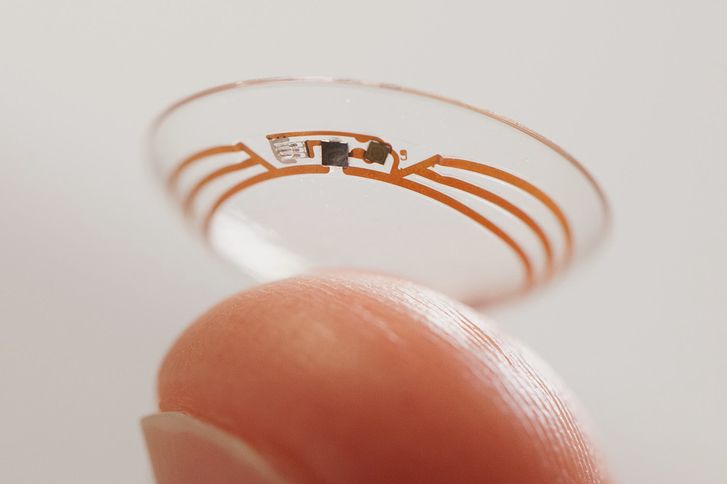Researchers at the University of Washington just announced something new they have been developing: a contact lens with a built-in LED display.
Consider this contact lens a prototype, because it can only display one pixel of information at the moment, though researchers have indicated it will one day be able to display much more data including emails. It'll be like Google Glass, only one-third of a millimeter in diameter, and it will fit over your eye rather than your face.
In order to make a such small parts, including a display, and fit everything onto a tiny polymer disk, researchers are using a 3D quantum dot LED printer. This 3D printer prints various layers of interacting material, each with their own purpose, and one particular emissive layer features quantum dots or nanocrystals of electronic properties.
Instead of relying on domed plastic light bulbs like typical LEDs, quantum dots go between a layer that gives electrons as well as a layer that keeps electrons. This combination allows the dots to radiate photons of light at a specific wavelength and colour, according to findings published in the Journal of Micromechanics and Microengineering.
The quantum dots go through the emissive layer to create a display of colours that are visible to, as cliche as it sounds, the naked eye. The lens does all this while drawing power wirelessly through an embedded antenna. It also stores energy via an integrated circuit and transfers energy to a chip containing one blue LED.
And finally, the 3D printer, which costs $20,000 alone, binds all these parts it created to the actual lens through an adhesive layer that is activated by UV light. Amazing, right? While all that contact lens display technology sounds amazing, don't get too excited: due to costs, large-scale production is not yet feasible.
Also keep in mind that researchers at the University of Washington are not the first to come up with a smart contact lens. Scientists at Oxford University are working on nanopixel lenses, and both Amazon and Google have programs in the works that hope to launch consumer versions of smart lenses.
READ: Google is developing smart contact lenses that detect health

